The G5 Sahel force is ready to deploy to fight armed extremist groups in the Sahel region of northwestern Africa, Niger’s defense minister said on Sunday, just days after U.N. Secretary-General Antonio Guterres urged the G5 countries to accelerate deployment.
Burkina Faso, Chad, Mali, Mauritania and Niger agreed last year to set up the 5,000-strong G5 Sahel joint counter-terrorism force that aims to train 5,000 troops to work alongside French troops and U.N. peacekeepers.
“We are ready to launch operations in the sense that all forces that make up the G5 Sahel are in place,” minister Kalla Moutari said in Ouagadougou.
Defense ministers from the five countries gathered in Burkina Faso’s capital to formally finalise steps to bring the force up to its full strength.
“We have put in place the legal documents that govern the operations of this force on our territories,” Moutari said.
“It is now only a matter of timing, which will depend on the discretion of the military leaders.”
UN’s Guterres urges acceleration of G5 Sahel deployment

U.N. Secretary-General Antonio Guterres last week urged the G5 countries to speed up the deployment of the joint force, warning that “the security situation in the Sahel continues to deteriorate.”
The Sahel force was projected to be fully up and running in March but that deadline was missed, mainly because of problems with training and equipment, he said in a May 9 report to the U.N. Security Council.
The first operation of the G5 force in November was beset by logistical problems, although a commander insisted that the problems were not insurmountable.
Noting that “terrorist groups are attempting to gain influence and expand their presence,” Guterres said the “operationalization of the joint force is not progressing at the required speed.”
The U.N. chief urged the five countries to “deploy their remaining troops as quickly as possible and to resolve command and control issues” including transferring authority over their battalions to the force commander.
Guterres said that direct U.N. annual funding of the G5 Sahel force was the “best option,” rather than contributions, and urged the council to provide the needed resources.
However, the United States has backed bilateral funding for the force but opposed opening up a new United Nations budget for the regional operation.
The council is scheduled to discuss the report at a meeting on May 23.

G5 Sahel joint counter-terrorism force
The G5 Sahel force, headquartered in Sévaré, Mali, will operate alongside thousands of French and UN forces already deployed in the region along the southern rim of the Sahara desert.
France began a military intervention in Mali in 2013 that evolved into the current Operation Barkhane deployment launched in 2014 with a mandate for counter-terror operations across the Sahel region, and around 4,000 French troops are deployed.
The U.N.’s MINUSMA peacekeeping force has around 12,000 military and 1,900 police personnel deployed from 57 U.N. partner nations, and is considered the U.N.’s most dangerous.
The G5 Sahel Joint Force initiative was spearheaded by France, leading to a U.N. Security Council resolution in June 2017 that called for international logistical, operational and financial support to G5 Sahel initiative.
About $570 million has been promised by European countries and the E.U., the United States, Saudi Arabia, the United Arab Emirates and Turkey to finance the regional force.
The U.N. Security Council in December authorized Minusma to provide assistance to the G5 Sahel force, saying the mission contributes to security in the region and therefore facilitates the Minusma mandate in Mali. The authorization is solely for operations in Malian territory and support can be given only when it does not impact Minusma’s own operations. It can include medical and casualty evacuations, the provision of fuel, water and food, as well as assistance in the preparation of bases.
Special Representative of the Secretary-General and head of Minusma Mahamat Saleh Annadif said on April 11 that, the mission had sketched out a framework for its support of the G5 Sahel force, and that mechanisms were operational.
However, Minusma is not without its own logistical problems. Annadif said the U.N. is in talks with Canada for early deployment of six helicopters to Minusma, but that six is not enough and the mission remains about 100 armored vehicles short of fulfilling its needs.
Facing Mali equipment shortfalls, the UN asks Canada to deploy helicopters in June
With reporting from AFP


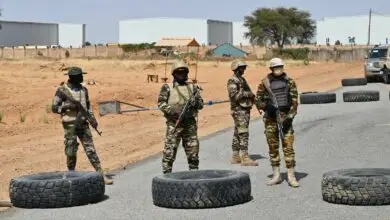
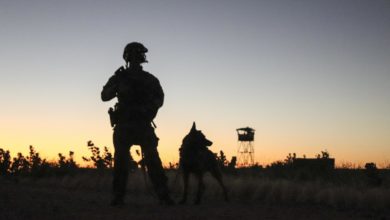

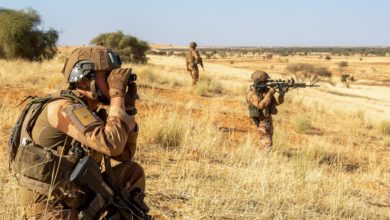
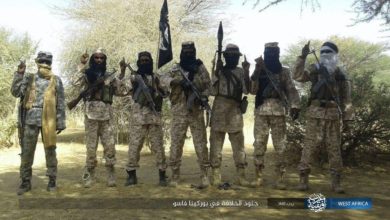

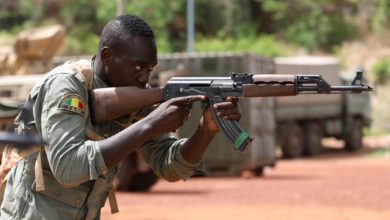
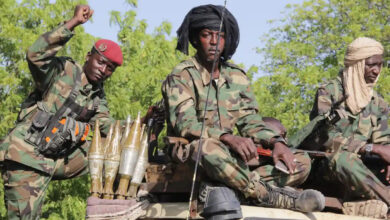
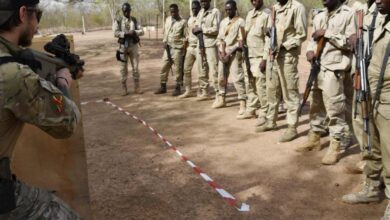
4 Comments